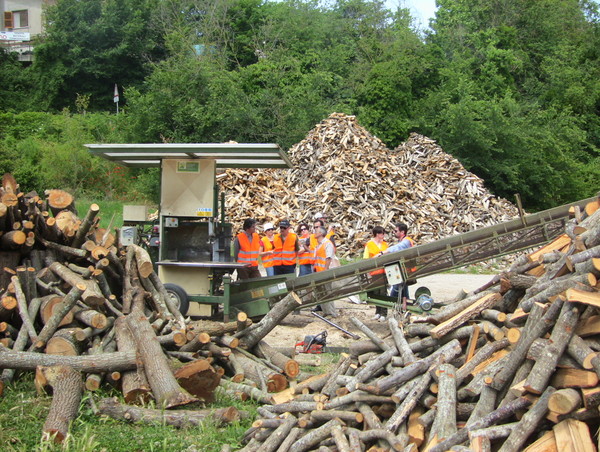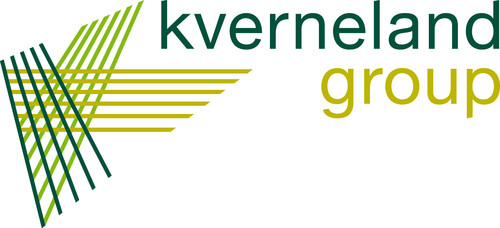
The Logistics for the management of biomass. Three EU projects
A conference at the FAO on the topic of "Mobilization of woody biomass for energy and industrial use" offered an update on the technologies and projects for energy uses of crop residues and dedicated plantations. The progress of the key projects in Europe was presented
This May 19th, the FAO Headquarters in Rome hosted the important conference on “Mobilization of woody biomass for energy and industrial use - Smart logistics for forest residues, prunings and dedicated plantations”. It was an international initiative which, in a single event, presented the results of three major projects (INFRES, Logistec and EuroPrunning). These projects, all supported by the European Commission with funds from the Seventh Framework Programme, have in common the need to stimulate the development of innovative technologies and efficient techniques to optimize the supply chain for the supply of biomass for energy and industrial use. There were discussions, in terms of maximum sustainability, of advanced criteria for the production, collection, processing, transportation and storage of different types of biomass (forestry, residual and grown ad hoc) in order to identify best practices, in the related policy areas, for their cost effective and environmentally friendly handling. In this context, agricultural and forestry mechanization plays a role of primary importance. For this reason, FederUnacoma, the Italian federation of manufacturers of agricultural machinery, and Itabia, the Italian Biomass Association that has been working with the manufacturers’ association for projects to mechanize the bioenergy production chains, attended the event as co-organizers.
Each of these projects included a communication exercise to be carried out on a large scale and at different levels (research, policy, industry professionals and the media) to disseminate the results of the three-year experiments carried out thanks to a budget of about 15 million Euros and the involvement of a wide, high-level partnership. Overall, over 60 entities have taken part in the projects, selected among prestigious research institutes and companies that are particularly active in the field of research and innovation, from 11 countries (Austria, Belgium, Finland, France, Germany, Italy, Netherlands, Poland, Spain, Sweden, Czech Republic). The idea of presenting at a single event the activities of three separate projects, albeit with strongly converging purposes, has required a considerable organizational effort, which, however, was rewarded by the presence of almost 200 participants from all over the world. Rojas-Briales, Assistant Director-General of FAO’s Forestry Department, gave a speech at the session that opened the workday. He underscored the immense significance (current and future) of biomass resources for energy use at a global level, by industrialized and developing countries. The precondition, as can be seen from the logical structure of the projects in question, is that the principles of environmental, economic and social sustainability be respected. FAO taking a position of this kind shows a clear opening to a smart use of biomass resources, clearing the field from the prejudice of an inevitable conflict with traditional production of wood for building, or with agricultural production for food.
The various sessions of the conference offered a chance to deepen the discussion with the reports of the partners in different projects on issues such as: the best current and future technologies for the supply of biomass; technology, raw materials and the economy of the entire biomass supply chain; the economic, environmental and social impact of biomass production. The closing session was the time to summarize what was discussed and to highlight once again the central role of research in this field, given the objectives of bio-energy and bio-economy in Europe and the world in the short and long term. Finally, Eva Mueller, Director of the Forestry Department, spoke on behalf of FAO, expressing satisfaction with the initiative and focusing on the important effects that may result from development models based on strong synergies between the world of scientific research, industry, and operators in the sector. FAO expressed the hope to continue the collaboration on bioenergy with this approach, to ensure harmonious growth through strategies that consider in the right way the pioneering efforts provided by industrial research. There is always room for improvement with the solutions that are applicable to specific productive entities in close contact with the plurality of geographical areas that make up our planet.
In addition to financial support from the EU, the conference benefited from the cooperation and assistance of a number of key players interested in facilitating the best possible mobilization of biomass. The support provided by FAO was supplemented by the support from well-known organizations representing the sector at an international level, including: IUFRO - International Union of Forest Research Organizations; IEA Bioenergy Agreement Task 43 - Biomass feedstocks; USDA - US Department of Agriculture / US Forest Service, USA; AEBIOM - European Biomass Association; EUBIA - European Biomass Industry Association; ITABIA - Italian Biomass Association; FederUnacoma - Italian Federation of Agricultural Machinery Manufacturers.
Following the Conference, as part of the INFRES project, CNR IVALSA organized a two-day study trip near Rome, attended by 11 companies or institutions from 7 foreign countries. The intent was to show some modern operating companies related to efficient local supply chains of biomass production that are representative of the specific opportunities offered by the Mediterranean environment of central Italy.
The specifically designed programme made it possible to visit forest sites and platforms for processing biomass for the production of firewood, wood chips and pellets, during normal working operations carried out by personnel specialized in integrated utilization.
Latest generation machines were tested, together with traditional techniques, where necessary, such as the extraction of plants with the aid of horses.
The tour provided an opportunity to see first hand the technological and organizational maturity that increasingly characterizes the Italian supply chains linked to bioenergy. It also showed the wide variety of solutions that our country’s companies adopt to meet the wide variety of economic and structural conditions typical of our region. The participants were able to appreciate the willingness shown by the managers of the visited companies, obtaining and providing useful information and insights.
The INFRES project - New innovative solutions to forest biomass supply in the EUResearch and development project coordinated by the Finnish Forest Research Institute (Metla) and funded by the 7th Framework Programme of the European Union (budget of 4.2 million Euros). The project aims to increase efficiency in the supply chain of forest biomass for the production of heat, electricity and renewable raw materials, since the main obstacle to achieving the new energy objectives of the EU is the difficulty in mobilizing the abundant biomass resources in a sustainable way from an economic and environmental viewpoint.
INFRES aims to accelerate technology development in this sector and to lead the way towards the energy goals of the EU through the production of new knowledge, technological solutions and business mechanisms derived from rigorous scientific research. The project involves 23 partners, with 8 countries involved (Austria, Finland, Germany, Italy, Netherlands, Czech Republic, Spain and Sweden). Of these partners, 9 are amongst the largest forest research institutes, and 14 European small to medium-sized companies, capable of representing all the different steps that occur along the supply chain. The project will last 3 years (September 2012 to August 2015). Further information is available at www.infers.eu.
The EuroPruning project - Development and implementation of a new,and not currently existent, logistic chain on biomass from pruningThe goal of the project is the development of the logistics phase of the use of pruning residues as an energy source, by optimizing the phase of collection, transport and storage of woody waste. Each of the three stages is analysed based on different parameters such as the quality of the biomass, the economic aspects and environmental sustainability. In particular, it was proposed to design and develop new prototypes able to collect the pruned material from the ground and to operate in diversified cultivation conditions (species, plant spacing, crop cycles, etc.). In order to optimize the transport phase, the development and integration of a GPS instrument is planned, thanks to which it will be possible to test a new system of traceability to guarantee to the end user the quality of the biomass. The project involves 16 partners representing 7 European countries: Belgium, France, Germany, Italy, Poland, Spain and Sweden. The project will last three years, ending in 2016. For further information, visit www.europruning.eu.
Logistec project - Logistics for energy crops biomass
Supported by the Seventh Framework Programme (budget 3.5 MEuros, completion February 2016), it aims to optimize existing technologies and develop new ones for the logistics supply chains of lignocellulosic biomass obtained from various dedicated crops (annual and perennial, herbaceous perennials and short rotation forestry) while respecting environmental and social sustainability, increasing the supply of biomass and keeping costs low. In addition, it provides for the creation of a virtual platform of stakeholders, informing them about the outcomes of the project and facilitating their involvement in specific actions. Further information at www.logistec.eu.








